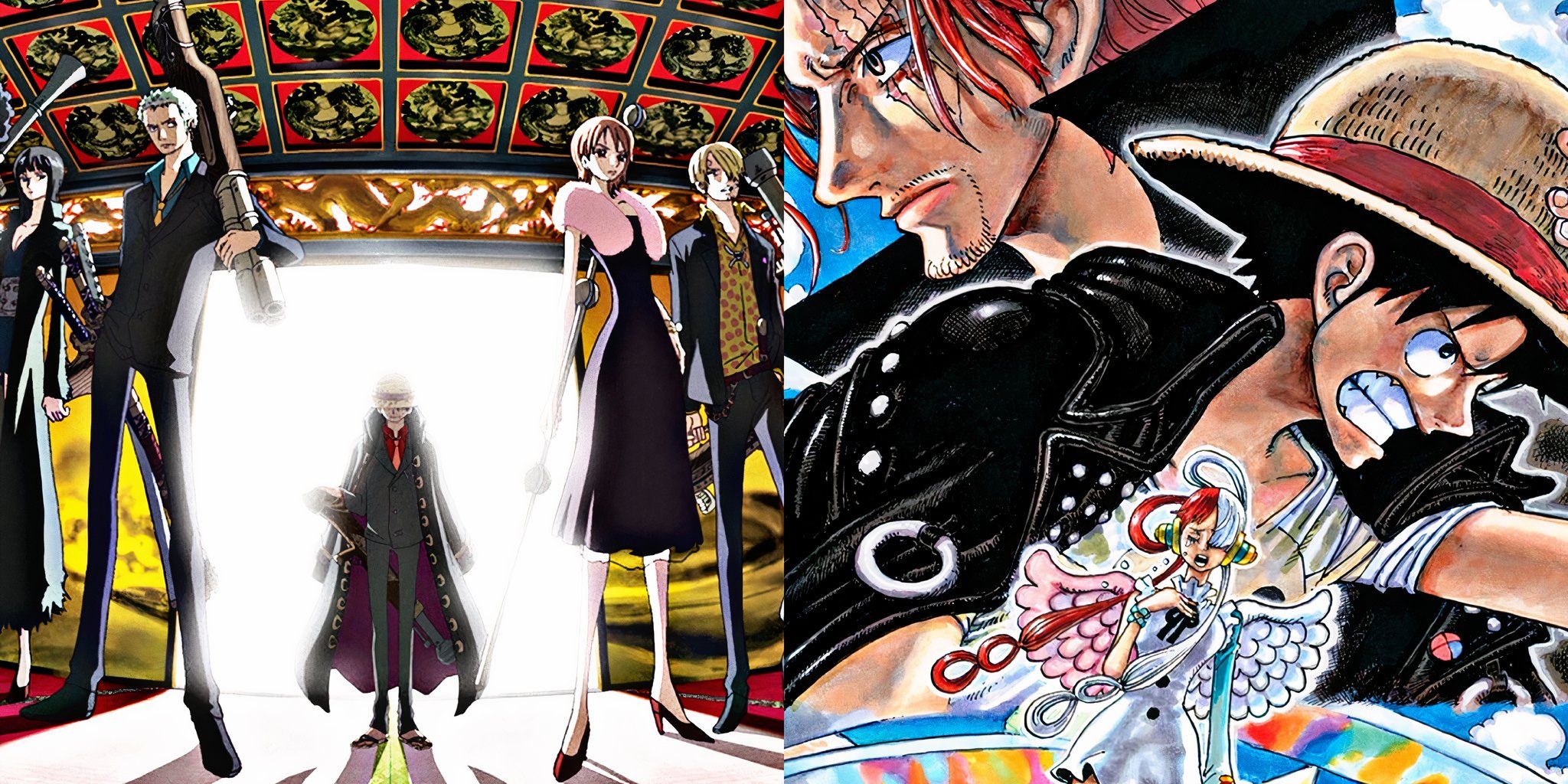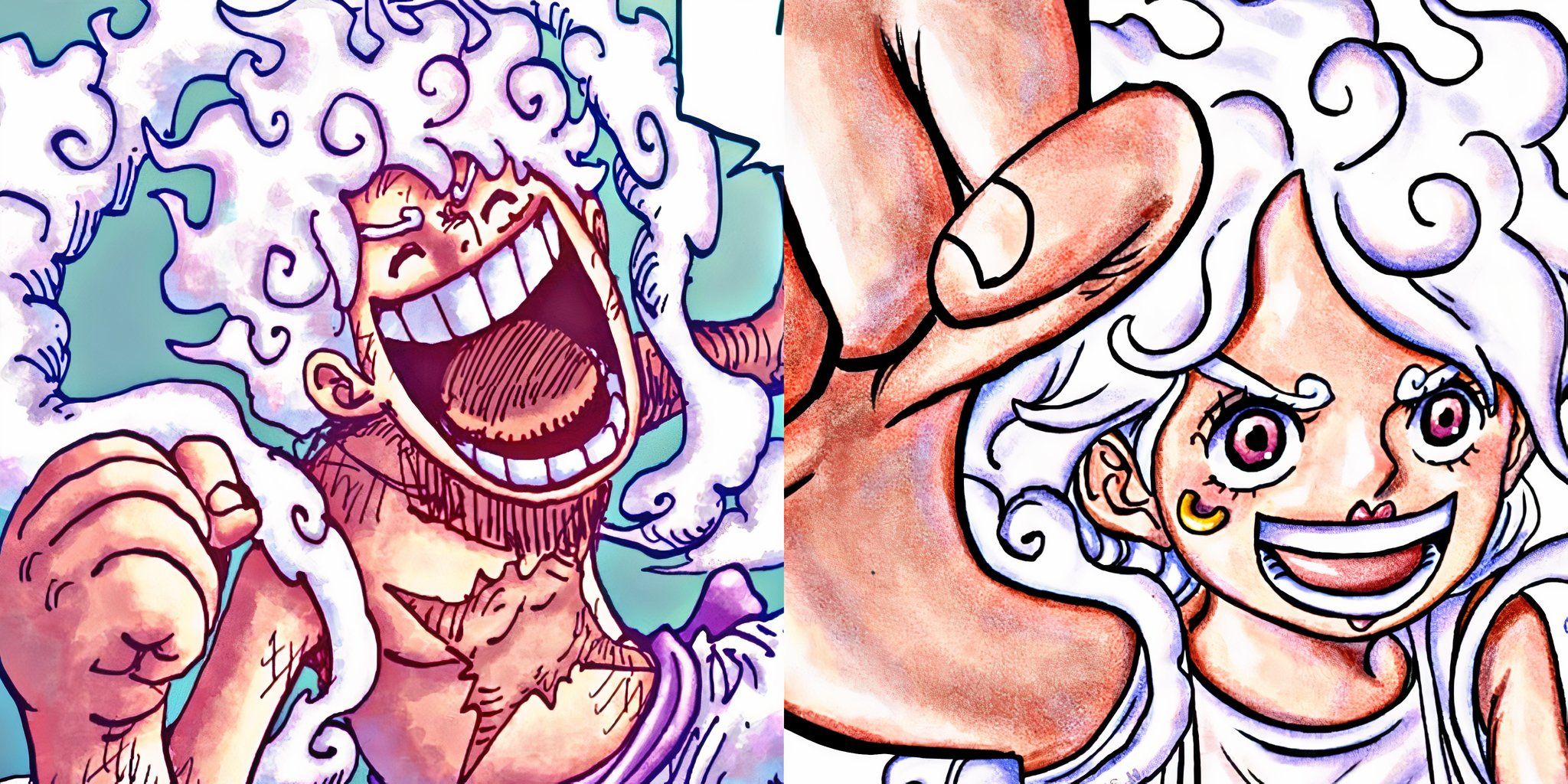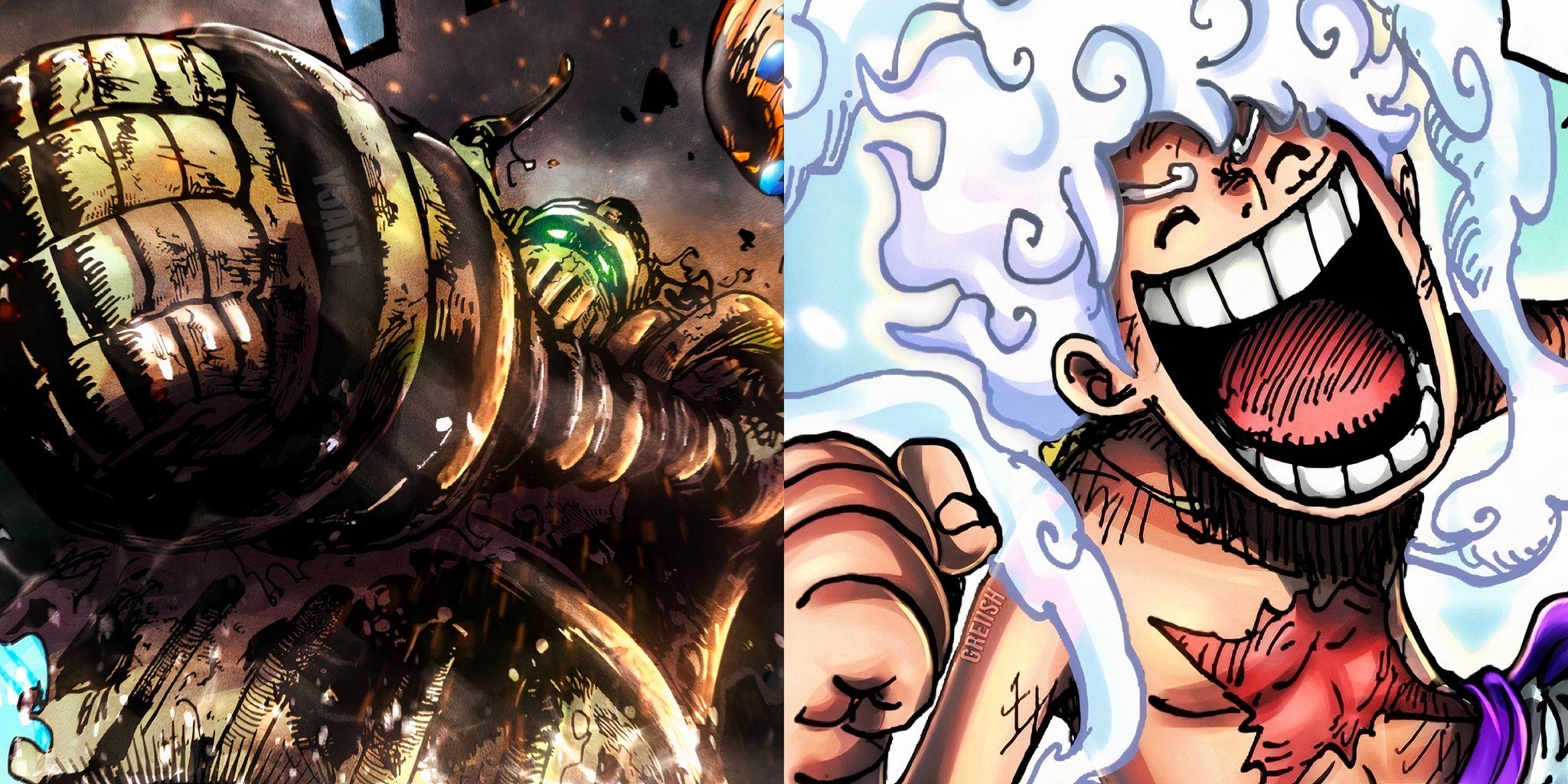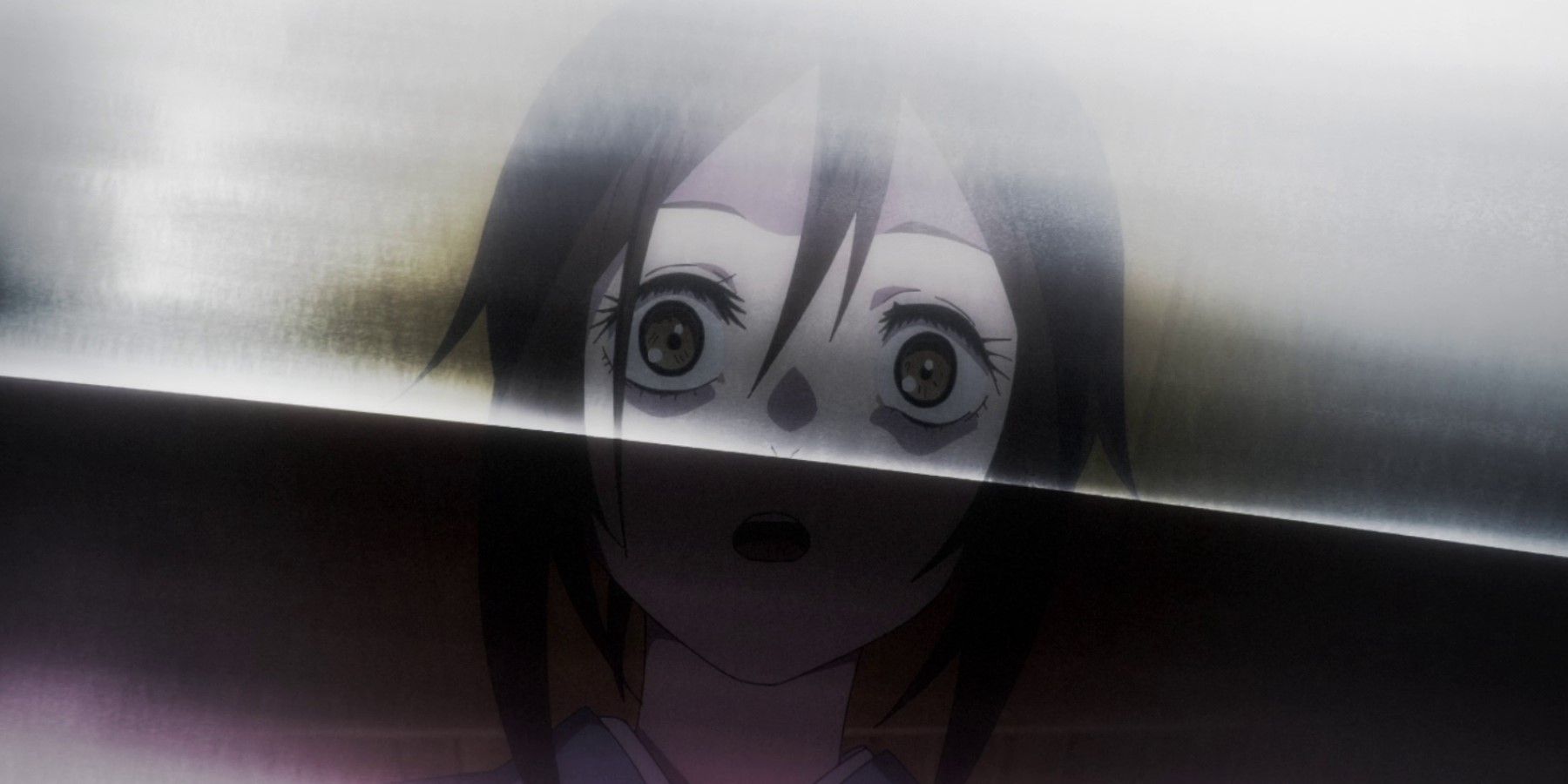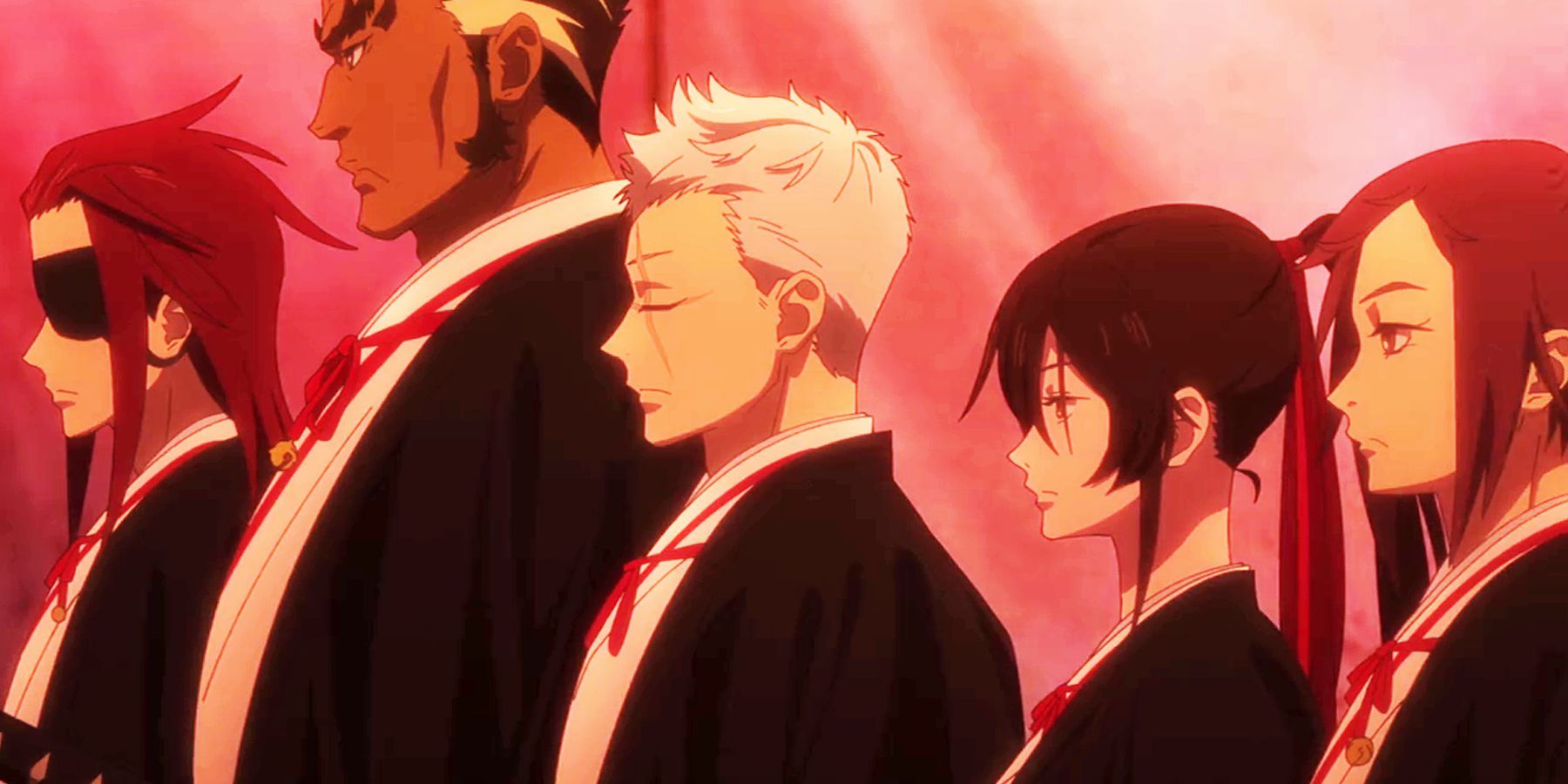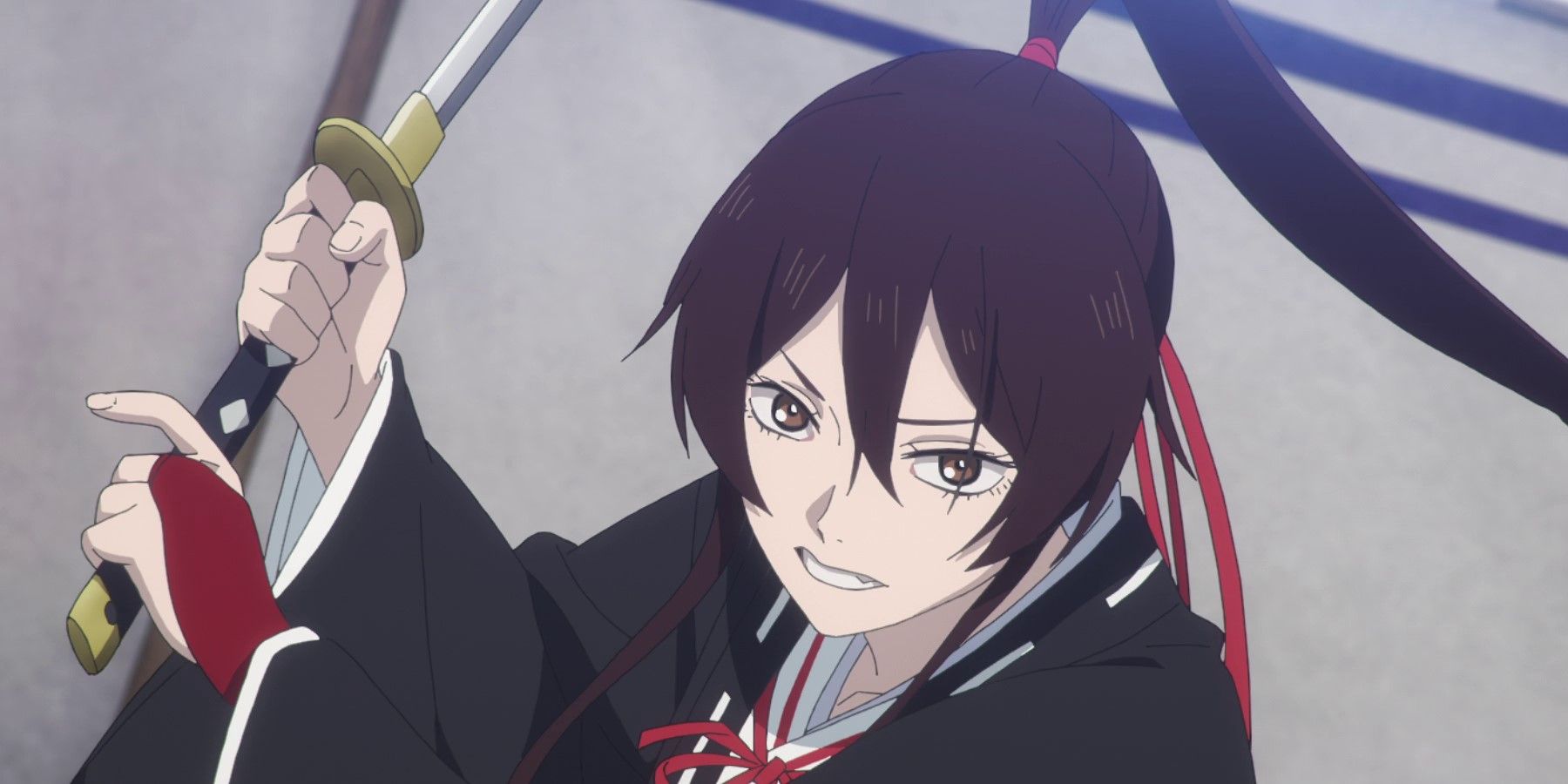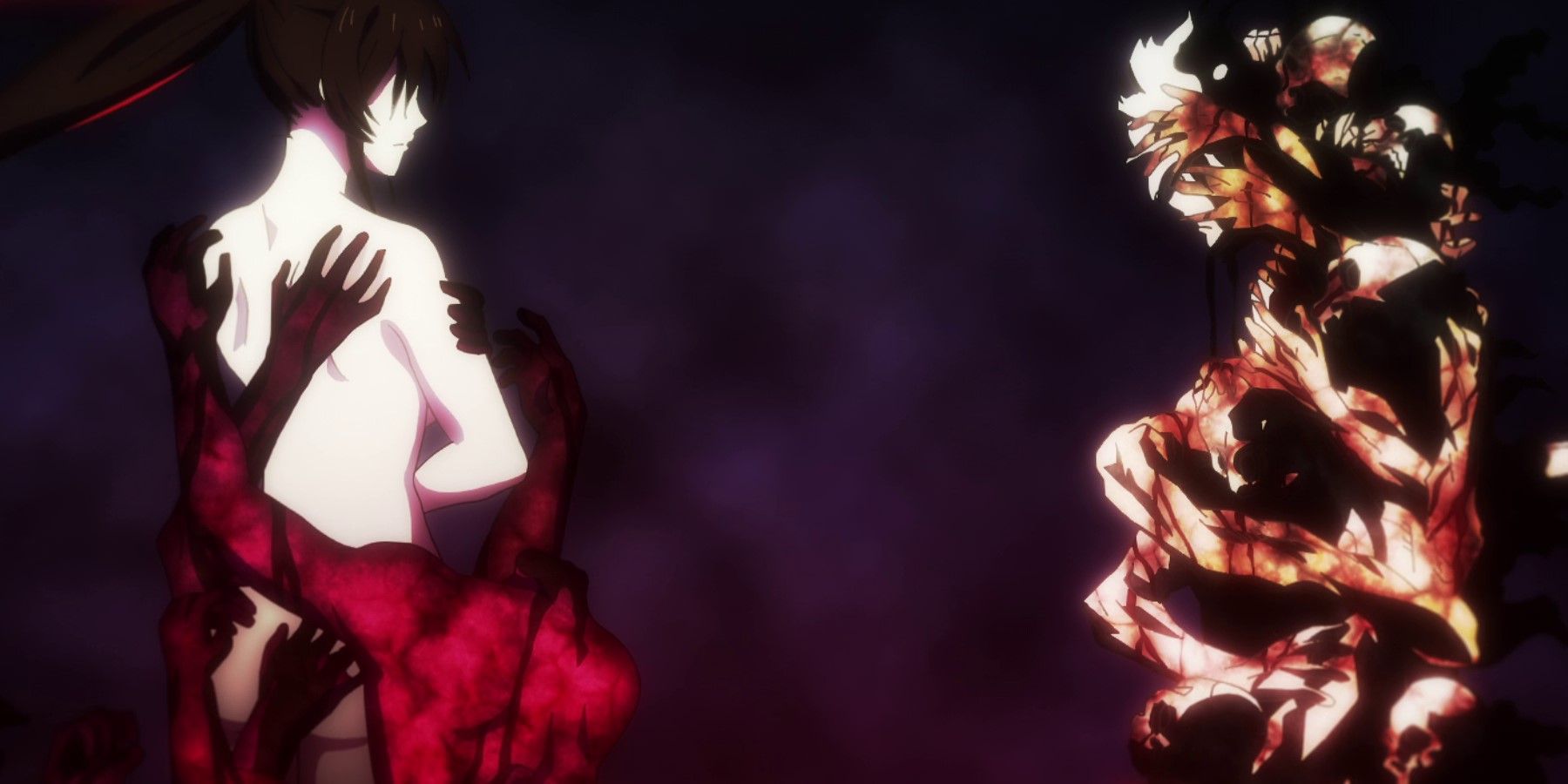The second episode of Hell's Paradise: Jigokuraku further fleshed out the past of deuteragonist Sagiri, setting up the relationship between herself and Gabimaru as birds of a feather. In the flashbacks to Sagiri's past, it becomes clear that her skill, while indubitable, is not without a major flaw: fear.
Sagiri's blade is dulled by the fear she channels through it as she kills, but what does that even mean? What is the fear in the blade of Yamada Asaemon Sagiri?
The Yamada Clan
To be able to understand the mechanics behind Sagiri's condition, it is important to understand the dynamic of the family she comes from. The Yamada Clan are rōnin (samurai who do not have a master), and have operated as sword-testers and executioners for centuries. It is in the very doctrine of the Yamada Clan for those executed by them to feel no pain and no emotion emanating from the blade of their killer. The name "Yamada Asaemon" is given to individuals who are tasked with the aforementioned roles of testing swords on corpses and decapitating criminals sentenced to death. However, since they are rōnin, they are technically not goverment-employed and receive no benefits from the fiefdom and as such, provide services additional to killing. The style of Kenjutsu employed by the Yamada Clan is known as "Tameshi Ittō-ryū" (lit. "One-Sword Testing Style"), with each individual giving the style a personal twist. The Yamada Asaemon members of the clan are ranked based on their swordmanship, and according to this ranking, Sagiri is at the very bottom of the list, ranked 12th.
Yamada Asaemon Sagiri
Sagiri is the daughter of the former head of the Yamada Clan, Yamada Asaemon Kichiji, a man she remembers for his incredible decapitation skill. Kichiji's abilities with the blade enabled him to not only decapitate in a single stroke, but in a manner that was so clean, the decapitated would not even be aware that they have already died. In Hell's Paradise: Jigokuraku episode 2, Sagiri looks back on the moment she set her sights on becoming a sword-tester like her father, when he decapitated a certain criminal rakugoka who wanted to be executed as he told a story. Even after the man's head rolled, his body only keeled over in death once the tale was told. Sagiri's father told her that the best executioner is one who can keep their blade devoid of all emotion, and offer the criminal a quick and painless death, something that remained ingrained in her mind. As a child born to a family known for being in the business of killing, Sagiri experienced bullying from the children in her community, to which she did not retaliate, but hid behind the safety of an adult. Hearing the ring of the infamous "Decapitator Asa" nickname from various members of the community led Sagiri to develop a sense of shame and a hyper-awareness of the act of killing with which her family was greatly associated.
In the first episode of Hell's Paradise: Jigokuraku, Sagiri is introduced as a stoic and serious individual, who is also very skilled at her job. When she was set to execute Gabimaru, it was the first time he'd acted out of self-preservation despite having experienced four different escalating attempts on his life. This was to show just how skilled Sagiri is with a blade; however, episode 2 reveals that despite having great technique, Sagiri is not able to totally kill off her emotions, despite her perceived stoicism. Even though she has killed people before, having to do that puts Sagiri in a position of extreme emotional discomfort, which she does not recognise in herself; however, her senior in the beheading game, Yamada Asaemon Eizen, the top-ranked samurai bearing the name, tells her that the reason she cannot achieve the level of skill that her father once had is due to the fact that she cannot remove the sense of fear that comes with bearing the responsibility of ending another person's life. On some level, Sagiri is aware of the presence of these emotions when it is time to kill, and given the male-dominated field she is in, these emotions are touted as directly related to her femininity.
That Which Dulls the Blade
"You're angry , therefore your heart is shaken. Your heart is shaken, therefore your blade is dull."
– Grand Fisher, BLEACH
As Sagiri introduces in the second episode of Hell's Paradise: Jigokuraku, the key to being a master executioner lies in being able to keep one's blade devoid of emotion. Having internalized this, Sagiri has mastered masking her true feelings but only to an extent, as Eizen repeats the sentiment that she expressed in the quick bout against Gabimaru in the first episode: the truth is reflected in the blade. While this aspect introduced Sagiri as Gabimaru's mirror, Eizen's words make it clear that the idea extends towards the wielder of the sword as well, and when Sagiri gazes into her own blade as it is drawn, what she sees is her own fearful expression. When the criminals are told to kill each other to whittle down numbers, Sagiri hesitates slightly when three of them come her way. Despite being able to swiftly behead them all, both Eizen and Gabimaru appear to be well aware of Sagiri's biggest "flaw": she possesses a high level of empathy, which leaks into her work. It is this empathy that made her capable of tapping into Gabimaru's core motivation, but it also makes her hesitate when swords need to be swung.
In the BLEACH series by Tite Kubo, the protagonist Ichigo Kurosaki's biggest emotional drawback was anger. In his only battle against Grand Fisher, the Hollow that killed his mother, Ichigo is told that his youth makes him susceptible to emotional instability, making him easily angered in combat, which in turn makes him less effective in combat. The fear reflected in Sagiri's blade is a similar concept, and it is because of his mastery over his emotions that her father was as skilled an executioner as he was. The great thing about Sagiri's character; however, is that she is not being pushed towards a total abandonment of her emotions, and that is because of Gabimaru's influence. In episode 2 of Hell's Paradise: Jigokuraku, Gabimaru does not fight as chaos ensues among the other criminals. Rather, he confronts the Shogun, telling him that it is abnormal to be as comfortable with killing and violent death as to observe an all-out deathmatch as if it were a spectacle. This snaps Sagiri out of a dark spiral in which her fear, as well as the guilt she feels for the people she has already killed, amalgamate into an immobilizing emotional cocktail. The reason why Gabimaru's words spoke to Sagiri is because they reconnected her to her remaining humanity, and like Gabimaru in episode 1, Sagiri sheds a tear which serves as a symbol of her intact humanity.

